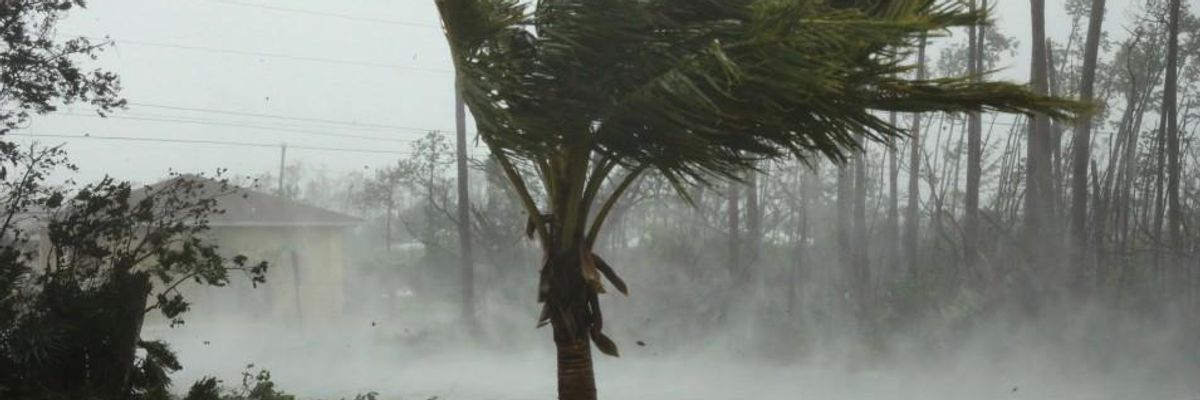Even as Hurricane Dorian tore through the Bahamas and crept up the southeastern U.S. seaboard, broadcast news networks were loathe to connect the powerful storm's strength to the climate crisis in spite of the science linking warmer sea surface temperatures to increased frequency of strong hurricanes.
According to a study by watchdog Media Matters For America, only CBS aired a segment tying climate change to hurricane activity like Dorian's. NBC and ABC aired no such programs.
Dorian has consumed the newscycle since the storm formed in the mid Atlantic between Africa and the Caribbean in late August. The storm delivered a catastrophic near 48 hour sustained hit on the Bahamas on Sunday and Monday and made landfall on Thursday in North Carolina's Outer Banks region.
The number of segments on the storm compared with the sole climate crisis report, as the Media Matters study showed, were staggering:
Broadcast TV news shows aired 216 segments on Dorian from August 28 through September 5. CBS led with 84, followed by ABC with 73, and NBC with 59. The only segment that discussed climate in the context of the storm aired on the September 4 episode of "CBS This Morning." ABC and NBC did not air a single segment that linked Dorian to climate change.
It gets worse, though--CBS aired another single climate-related segment during that time, on a topic that was also covered by ABC:
ABC's only mention of climate change at all during this period was in a segment about Prince Harry's travel sustainability project, which continues the network's trend of prioritizing coverage of the British royal family over the climate crisis. CBS also aired a segment about Prince Harry that mentioned climate. This means that broadcast TV news aired more climate segments about Prince Harry's travel initiative than the hurricane that ravaged the Bahamas for nearly two full days.
The analysis follows a report from advocacy group Public Citizen which, as Common Dreams reported on Wednesday, found that "major U.S. media outlets are failing to connect the climate crisis to the strongest Atlantic storm ever to hit land."
At press time, Dorian was creeping closer to Novia Scotia. Hitting the maritime province would make Canada the third country in which Dorian would make landfall after the Bahamas and the U.S.

